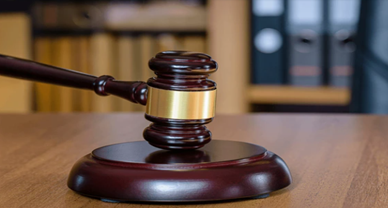Broadcasting is really too important to be left to the broadcasters: Star India Pvt. Ltd. v. Magicwin.Games
ABSTRACT
This blog analyses the latest case in which Star India Pvt. Ltd. v. Magicwin and ors. got a dynamic injunction against a number of websites that were streaming ICC events without proper license and permission. The case brings an understanding of difficulties in shielding broadcast rights in the digital environment, especially the recognisance of new efficient legal measures such as “Dynamic +” injunctions against ongoing digital Piracy. The recent judgement of Delhi High Court ruled out that while preventing significant financial investment and copyright in Exclusive Broadcasting Rights, it is also necessary for the Courts to evolve legal position as per the latest developments in digital age which the world is witnessing.
INTRODUCTION
With the advent of technology, the importance of intellectual property has increased. Revolutions in technology have often led to evolution in the IPR such as Patents, Copyrights, Trademarks etc. Talking about Copyright law[1], copyright is a bundle of rights granted to the creator in recognition of his intellectual labour, idea and expression that he has put in to create it. With respect to that, new technology has given rise to new concepts like computer programme, computer database, computer layouts and various works on web etc. The advancement in technology has led to challenge the constitutional balance between the interests of copyright owners in the exploitation of their works and society’s interest in the free flow of information. The mergence of technology has also revolutionized the world of broadcasting, presenting plethora of opportunities and challenges for both content creators and distributors. Broadcasting rights are protected under copyright law in India. A huge sum of money is paid by the media platforms to the broadcasters to exercise exclusive rights to broadcast live events. The royalties that are earned by the broadcasters from selling their exclusive footage to the other media outlet competitors enable them to earn more and thence invest that in the costly infrastructure for setting up the broadcasting space.

India is the 3rd largest broadcasting market in the world, and it constitutes a great part of the mass media industry of the world. The rights of broadcasting organizations in India are primarily governed by the Indian Copyright Act, 1957. The amendments made in 1994 introduced the rights of broadcasting organizations in copyright law that was further amended in 2012 to extend the scope of the rights granted to broadcasting organizations. [2]Furthermore, in India, the copyright Act of 1957 is the main legal framework that provides for the safeguarding of broadcaster’s rights and broadcasting organizations. Section 37[3] of the Act is a provision that deals with the specific rights of broadcasting organizations in this regard.
NATURE OF BROADCASTING RIGHTS
Under the umbrella of Copyright Act, broadcasting organizations are given special economic rights for the protection of their investment. The Delhi High Court has stated that as per Clause 11 of the Statement of Objects and reasons of copyright Act, the broadcasting reproduction rights were akin to the rights of a copyright holder.
BROADCAST & BROADCASTING ORGANIZATION
The Indian Copyright Act, 1957 does not recognize a broadcast as an independent creative work but grants ‘broadcast reproduction’ rights to broadcasting organization. Section 2 (dd) defines broadcast as follows:
“Broadcast‟ means communication to the public-
- by any means of wireless diffusion, whether in any one or more of the forms of signs, sounds or visual images; or
- by wire, and includes a re-broadcast.”
Section 37 grants each broadcasting organization an exclusive right known as the “Broadcasting Reproduction Right,” which allows them to reproduce their broadcasts. This right remains valid for twenty-five years from the date of the broadcast[4]. Any activities undertaken during the term of this right that involve the reproduction of the broadcast without the consent or authorization of the rights holder (the Broadcasting Organization) will be considered a violation of the “Broadcasting Reproduction Right.”
Technological advancements have transformed the way live coverage is transmitted, encouraging many to participate in the excitement of showcasing significant events. Copyright and related rights, particularly those linked to broadcasting, have strengthened the relationship between broadcasters and performers or producers. Today, media companies pay substantial amounts to secure exclusive rights to broadcast major events. The sale of broadcasting and media rights has become a significant and essential revenue stream for many organizations, helping to fund live events, performers, decor, and music equipment, among other needs.
BACKGROUND OF THE PARTIES:
The Plaintiff, Star India Private Limited, a bigshot media and entertainment company registered in India, having a diverse portfolio of TV channels and digital platforms. The Plaintiff holds plethora of exclusive rights ranging from popular TV shows, films to sports content. The Plaintiff also operated numerous channels and services which includes Disney+Hotstar, which mainly broadcasts live sports and films.
Plaintiff entered into a Media Rights Agreement with ICC for Exclusive digital media rights, and TV rights in relation to various ICC events, including t20 world cup, for 4 years, 2024-27. These rights which the Plaintiff enjoys are known as Broadcast Reproduction Rights, given under Section 37 of the Copyright act, 1957.
In the present case, there are 22 Defendants, and are categorized as:
- Defendants No. 1-9: Are rogue betting websites stated to be illegally indulged and offering betting services online which is in contravention of Public Gambling Act, 1867. The defendants are also engaged in unauthorized broadcasting, and thereby also providing communications of the cricket matches and parts, on several online platforms without any authorization.
- Defendants No. 10-11: Are Domain Name Registrars (DNRs), where activities with regards to rogue websites are hosted.
- Defendants No. 12-20: Are different Internet Service Providers (ISPs)
- Defendant No. 21-22: Are the two ministries, namely: Ministry of Telecommunications (MeitY) and Department of Telecommunications (DoT)
LEGAL ISSUES
There exist two legal issues, namely:
- Copyright Infringement: The main issue before the court was whether the piracy of copyrighted content presents a recurring threat, especially with the imminent ICC Events?
- Broadcasting Infringement: Whether the sites have demonstrated a propensity to illegally broadcast copyrighted works, underscoring the urgency to pre-emptively block their access to such content?
PRAYER
The plaintiff emphasized the need of the hour, requested to restrain such rogue betting websites on real-time basis without requiring parties to first approach the Court by filing affidavits in respect of each such website that begins unauthorizedly telecasting matches, as such a lag would result in the website being successful in their illegal activities and infringing the Plaintiff’s rights before any action could be taken.
The Plaintiff prayed for ‘dynamic+ Injunction’, relying on the case of Universal City Studious LLC v. Dotmovies.baby[5], to ascertain its rights over work as well as such other protected creations of the Plaintiff created during the pendency of the suit.
COURT’S DECISION AND ANALYSIS
The Delhi High Court evaluated the evidence, and the urgency of the situation at hand and granted an ex-pate ad interim injunction to restrain the Defendants, rogue websites from further violating the plaintiff’s rights. The Court recognized the piracy done by rogue websites which pose recurring threat to the Plaintiff in the present case. The Court also recognized the dynamic nature of the digital piracy and the need for dynamic+ injunction, and not granting an injunction would cause Plaintiff irreparable loss and damage. The Court also referred the case of Universal City Studios[6], which the Plaintiff’s relied upon, and stated that a swift action to prevent such infringements is imperative for preserving the plaintiff’s investment in the broadcasting rights and protecting their copyright, making out a prima facie case for the grant of an interim injunction. The Court further ordered Internet Service Providers (ISP) to block any new websites maliciously streaming the Plaintiff’s creation with regards to the ICC and Telecom service Providers (TSP) to block the access of rogue the websites and directed DNR to submit a comprehensive data on these websites within 2 weeks.
CONCLUSION
Star India’s recent win in Delhi High Court is an illustration of the need for real-time legal interventions to counter digital piracy. By giving a dynamic+ injunction, the court successfully safeguarded Star India’s exclusive broadcasting rights. This is the continuous battle between technology and copyright. This case thus for the first time offers the basis for all future cases and underlines the necessity for flexible laws safeguarding broadcast investments and copyright in the context of new media technologies.
Author:–Sarthak Sabbarwal, in case of any queries please contact/write back to us at support@ipandlegalfilings.com or IP & Legal Filing.
[1] Copyright Act, 1957
[2] Copyright Act (1994 Amendment)
[3] Broadcast reproduction right. — (1) Every broadcasting organisation shall have a special right to be known as “broadcast reproduction right” in respect of its broadcasts.
(2) The broadcast reproduction right shall subsist until twenty-five years from the beginning of the calendar year next following the year in which the broadcast is made.
(3) During the continuance of a broadcast reproduction right in relation to any broadcast, any person who, without the licence of the owner of the right does any of the following acts of the broadcast or any substantial part thereof,—
(a) re-broadcast the broadcast; or
(b) causes the broadcast to be heard or seen by the public on payment of any charges; or
(c) makes any sound recording or visual recording of the broadcast; or
(d) makes any reproduction of such sound recording or visual recording where such initial recording was done without licence or, where it was licensed, for any purpose not envisaged by such licence; or
(e) sells or gives on commercial rental or offer for sale or for such rental, any such sound recording or visual recording referred to in clause (c) or clause (d) shall, subject to the provision of section 39, be deemed to have infringed the broadcast reproduction right.
[4] Sanjana Sen, “The law relating to broadcasting of live events” (blogipleader), August 12, 2024 https://blog.ipleaders.in/laws-relating-broadcasting-live-events/.
[5] 2023 SCC OnLine Del 4955
[6] Supra

